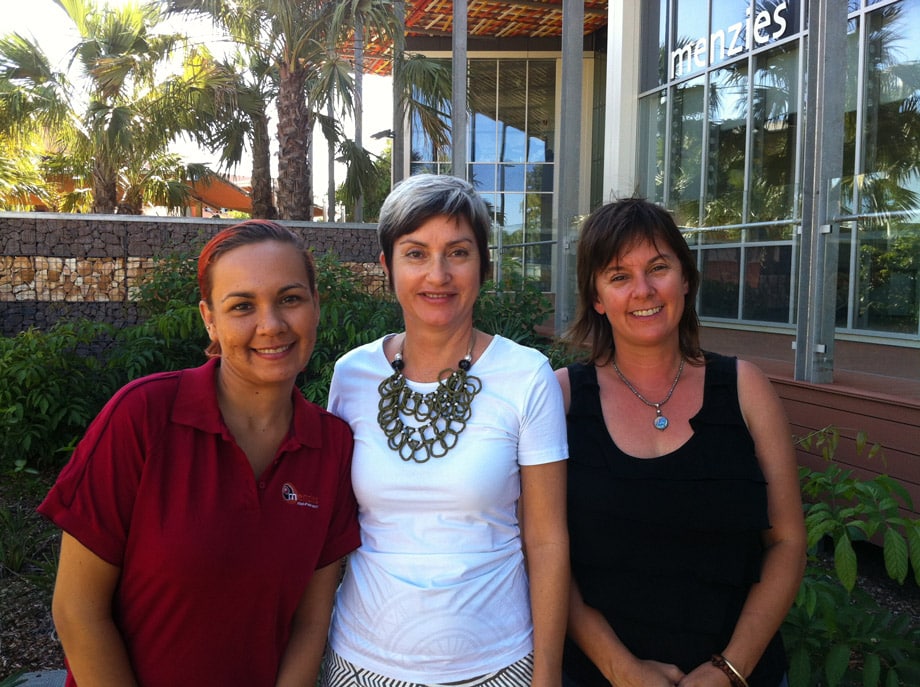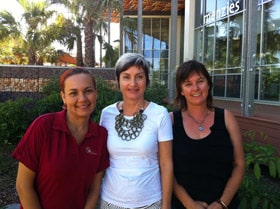NEWS

Guest Blog- Rheumatic heart disease in pregnancy – why does it matter?
Rheumatic heart disease in pregnancy – why does it matter?
This blog piece is written by some of the investigators on a NHMRC-funded research project looking at the impact of RHD in pregnancy: Sue Kruske, Suzanne Belton, Liz Sullivan, Juanita Sherwood, Heather D’Antoine, Geri Vaughan, Lisa Jackson Pulver.
A lot of the – much-needed - focus on the impact of rheumatic heart disease in Australia and New Zealand is about kids. But did you know that each year 2-3% of Aboriginal women in the Northern Territory journey through pregnancy with Rheumatic Heart Disease (RHD), and up to twice as many women as men are diagnosed with RHD in Australia?
So, why does it matter so much in pregnancy?
The heart has to work much harder for pregnant women, and when the heart valves are damaged with RHD it can cause difficulties for mum and baby. The flip side to this is that many women can have safe pregnancies with healthy bubs if they get the right care.
“It’s so important to ask the right questions when a woman comes for antenatal care, and to have the right follow-up (usually an echocardiogram and cardiac review) if she has a history of rheumatic fever or RHD.” Liz Sullivan, Principal Investigator RHD in Pregnancy study.
Other parts of the story
The impact of RHD in pregnancy spans much more than early diagnosis and good clinical care. Over the last couple of years, we’ve been walking the journey with women in the Northern Territory through their pregnancy, listening to their stories.
“The lived experiences of women and families with rheumatic heart disease is incredible”, says Sue Kruske, a midwife who worked in remote areas with Aboriginal communities for years. “If we’re going to work out how to give better care we need to understand how women understand this disease and what it means for them. We’re aiming to mindfully unpack the different ways of knowing RHD, which can be tricky to describe and make sense of – for example, why having the monthly (secondary prophylaxis) injections matter.” Lawurrpa Maypilama, a senior researcher from Galiwin’ku NT) agrees: “Stop giving us the simple story – we want the whole story, told the right way”. Part of our study is trying to find out better ways to do that.
Led in the NT by Suzanne Belton, we’ve been trying to walk in women’s shoes and identify the barriers as they go through pregnancy and afterwards. The women’s health care was complicated by a lack of coordination in the health care system. “Women can fall through the cracks” says Suzanne. “We’ve talked with women where they’re been discharged at night without medications, without adequate transport access. They are transferred often long distances away from home, birthing away from Country, with family and community and other competing basic demands such as food security and poverty that can make RHD seem a low priority. All of these things impact on the women’s ability to engage with healthcare systems. Despite all this, women in our study are incredibly resilient.”
Juanita Sherwood sums up…. “We’re talking about systemic issues of care here in a disease that shouldn’t exist in Australia – or anywhere else. The conversations with the women who have been so generous with their time and thoughts are helping us as we think about how health care systems can improve care and diagnosis.”
Please watch the short film RHD in Pregnancy
Please refer to the AMOSS-Rheumatic Heart Disease In Pregnancy flier here for detailed information
Visit AMOSS (Australasian Maternity Outcomes Surveillance System)
Featured Image above: Quitaysha Thompson, Suzanne Belton and Kylie Tune - research team for the NT arm of the AMOSS RHD in pregnancy study.

















